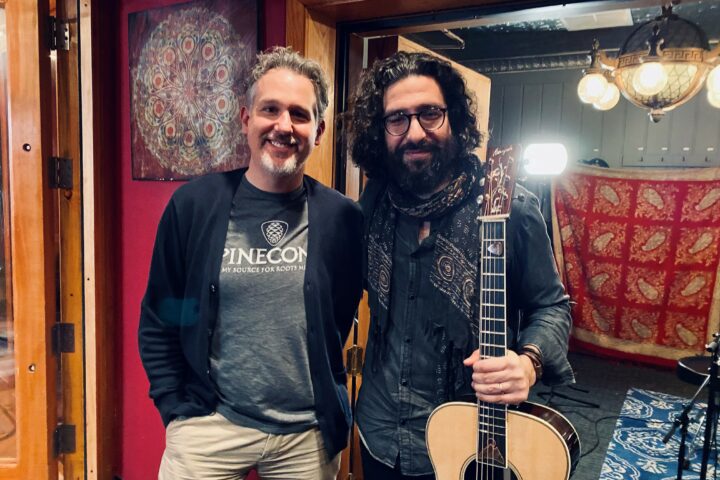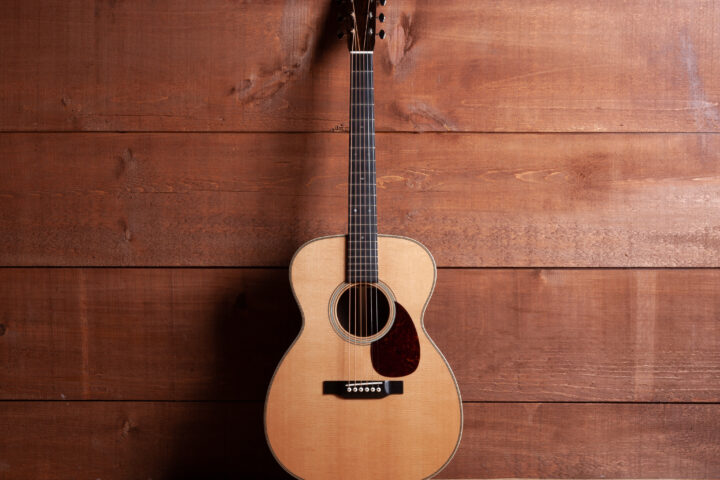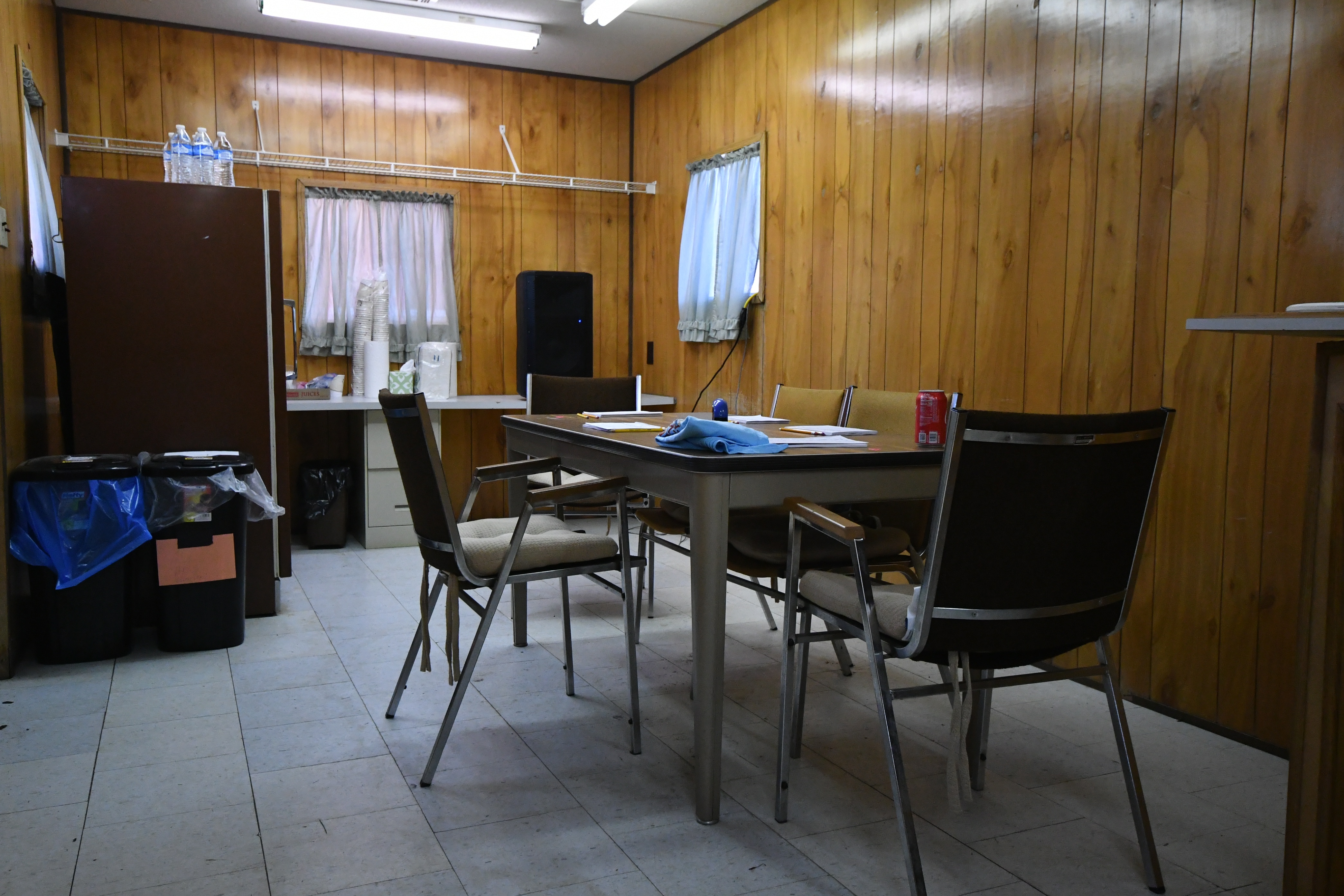
It’s 8:58 a.m. Saturday, Sept. 15 in Winfield, Kansas, and five men sitting around a small table in an aging trailer are about to change one guitarist’s life forever.
They have no idea how much.
These are the judges who will decide the 2018 edition of the National Flatpicking Guitar Championships at the legendary Walnut Valley Festival. Each has impeccable credentials with a long history in bluegrass music generally, and in the flatpick contest specifically, and great effort is made to keep them anonymous. And I’ve been allowed inside the judging trailer to report on how a champion is chosen.
The national flatpicking guitar championship was started by gifted guitarmaker Stuart Mossman and Winfield business executive Bob Redford as a hook for their new bluegrass festival. It has grown over 47 years to become as important to flatpicking guitarists as Wimbledon is to tennis or The Masters is in golf. And unlike the vote-driven popularity contest that decides the International Bluegrass Music Association (IBMA) instrumentalists of the year, this is a hard-core, nail-scraping competition with some of the best flatpickers in the world laying their reputations on the line to prove who’s top dog.
As the festival puts it in its instructions to the judges: “We are certain that you are well aware of the magnitude of this competition … Your professional attitude and loyalty to the principles of competition as enforced by the Walnut Valley Festival Association and as set forth in the rules of competition will help to continue the high standards we strive for each year in determining the winners. This is serious business for the contestants and we try to make the process live up to their expectations. It is our intent to make these contests as fair as possible, both in fact and in appearance.”
A win here can propel an unknown musician to international recognition. Just naming the top flatpicking guitar players who’ve won or placed here – Mark O’Connor, David Grier, Steve Kaufman, Stephen Bennett, Ron Block, Mark Cosgrove, Scott Fore, Cody Kilby, Bryan McDowell, John McGann, Jason Shaw, Allen Shadd, Kenny Smith, and more – reveals the depth of talent, drive and dedication players need to do well in this Instant Pot-pressured competitive environment.
Each judge has a small pre-printed notepad of scoring sheets marked with their specific judging number, a pencil with an eraser, and a few snacks and drinks. Isolated from the competition and unable to see the stage, they sit in a modest air-conditioned trailer with one small speaker that carries the live sound from each contestant. The judges cannot hear the contestant’s backup player, only the flatpicker. All effort is made to ensure fairness and anonymity. The contestants cannot speak on the mic, and are identified only by a number drawn backstage before the competition begins.
Everyone plays two tunes in the first round. After the scoring is tabulated and verified, the top five come back and play two more tunes in the semi-final. Scoring starts over from zero for that round, and the second-round scoring determines the top three for that year.
The contest allows a maximum of 40 entrants, but due to Hurricane Florence which hit the Carolinas days before the festival, many players who had preregistered this year were unable to make the trip west to Winfield, located about an hour southeast of Wichita. Only 21 competitors show up to draw their numbers, a record low going back to at least 1980.
“We had 37 percent of our flatpick guitar registrants that live in areas that were in a direct path of Hurricane Florence,” says WVA media director Rex Flottman. “It is an assumption that this was the reason for their absence. However, there were a couple of contestants that had homes in the storm’s path that did attend and compete with an attitude of the storm will hit whether they were at home or in Winfield, so they decided to come to Winfield.” Right. You wouldn’t expect Tiger to miss the US Open just because of a little storm, so why miss Winfield because of a hurricane?
And there’s plenty of incentive to make it here in addition to the major career bump. The flatpick winner gets his or her choice of one of three top dreadnought guitars donated this year by Collings, Martin and Gallagher, plus a check for $3,000 in cash, and a slew of other prizes. All total, WVA has awarded more than $2 million in prizes to the flatpick winners over the decades.
In the judges’ trailer, contest auditing head Ann Richardson reads the five judges the rules and exceptions. Players may use a capo, but are banned from using multi-position capos to alter the guitar’s tuning, for example. Dropped 6th string tunings to any note are allowed. But if a player wants to hybrid pick like Clarence White, that’s out of bounds. Straight flatpicking and traditional cross-picking only, if you please.
At 9:01, emcee Aaron Fowler walks to the announcer’s mic to begin the contest. After a few remarks, Fowler says, “Calling contestant #1 to the stage. Judges, this is contestant #1.”
The 2018 National Flatpick Guitar Championships has started.
The joviality of the morning fades as the judges concentrate of their job. Each contestants’ tunes are scored in four categories. Arrangement and Execution get a maximum of 40 points each. Up to 10 points can be awarded in Show Value and Overall Impression, giving each player a total of 100 maximum points.
As each contestant finishes, each judge marks his score in each category and hands the scoring sheet to an official. Most judges use their arm or hand to shield their scores from the others, like taking a math pop quiz in school. In the back of the trailer, three skilled auditors using calculators quickly tabulate and verify each score. There’s no way for a judge to go back and change an earlier score.
There’s little talk. The rules ask that no specific discussion about who a contestant might be based on their song choice and arrangements take place, but in some cases that’s unavoidable. Every once in a while, a song stumps one or more judges. “Oh, that’s ‘Hippodrome Reel,’” says Judge #1 as the others struggle to identify the obscure tune. As yet another contestant launches into “Alabama Jubilee,” Judge #4 wryly looks up and holds up four fingers – the fourth time they’ve heard the tune so far today. Sometimes, it’s the absence of a flatpicking standard that makes it stand out. When a contestant in the final finally draws out “Blackberry Blossom,” one judge remarks, “There it is!” to general laughter.
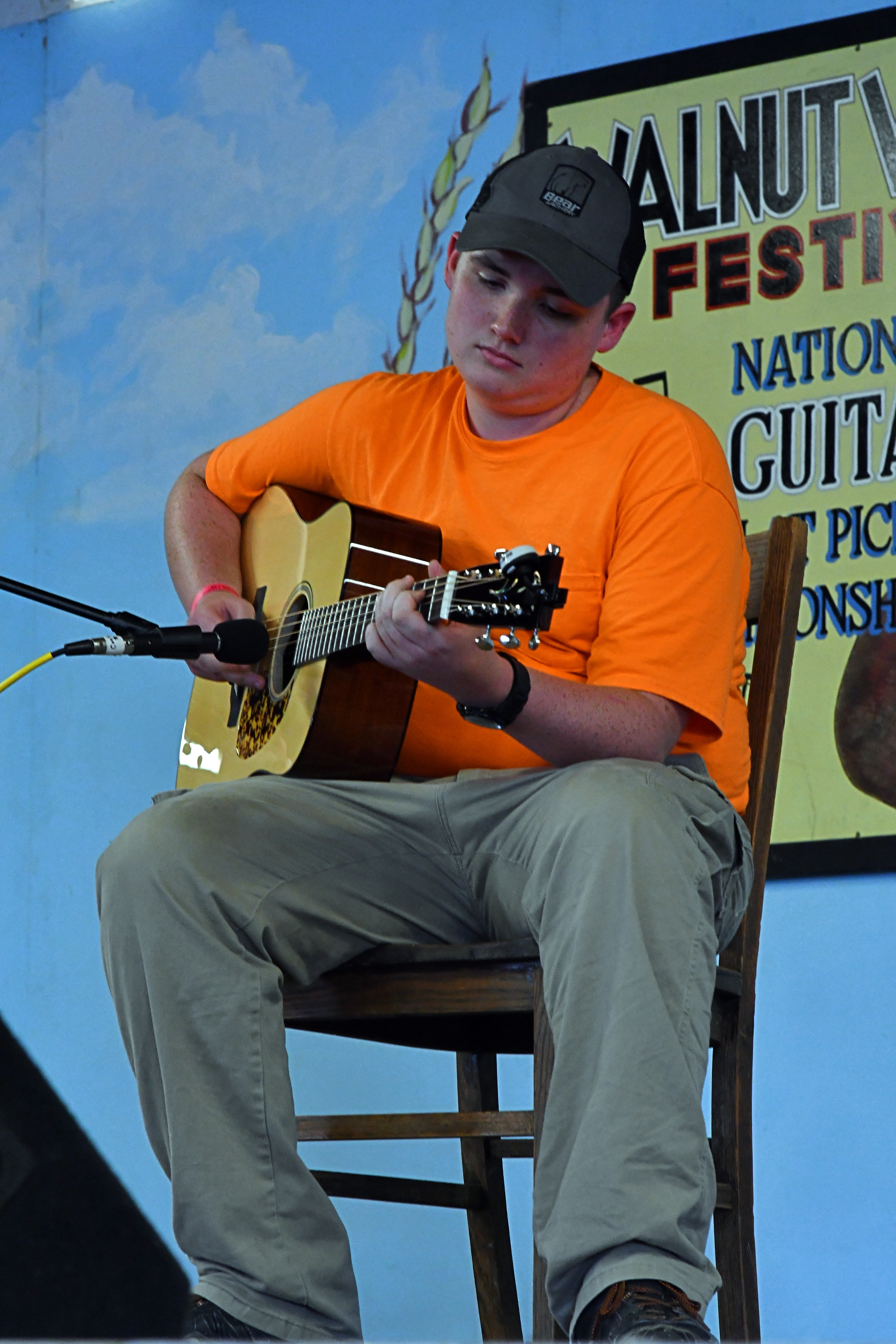
Backstage shortly after 8, young Luke Lovejoy is warming up. At just 16 from tiny Spencer, Indiana, he’s only been playing guitar four years and has only played in a local guitar contest with five other contestants before. Hell, Winfield was his first time farther west than Terre Haute.
He entered Winfield based solely on the encouragement of his friend and mentor, Solly Burton, who went on this year to win his third national mandolin title at Winfield. Luke’s only guitar was an inexpensive Asian-made dreadnought. But earlier in the week when visiting the Bourgeois Guitars booth at the festival, marketing director James Cook took a chance and loaned the young guitarist a top-of-the-line dreadnought for the contest.
Drawing a later number – 32 in the first round – he walked on stage with no expectations and played the only two tunes he had practiced: “Salt Creek” and “Forked Deer.” A few minutes later, he was shocked hear his number called for the finals. He had nothing prepared.
“I had about five minutes to get ready for the second round, so I just played two of my favorite fiddle tunes, ‘Black Mountain Rag’ and ‘Big Sandy,’” the young picker recalls with a big easy grin. Drawing #4 spot in the finals, he sat down before the contestant mic, and just played.
In the judges’ trailer, contestant 32 draws a lot of attention. His clean, clear-toned sound and classic flatpicking style stand out against a sea of wannabes and contenders who flubbed a critical passage or played without discernible style or musical flair. And when Luke hit the stage as finalist #4, several judges speculated that the contestant they were hearing was a well-known three-time champion, one of two three-time winners in the final, because of his solid, confident melodic variations on two classic flatpicking tunes.
It’s a very interesting moment. Winfield contestants speculate endlessly about whether the judges can “tell” who’s on stage by their tune selection, arrangement or execution. From my observations, that assertion is sketchy at best. Clearly, Lovejoy’s talent and enthusiasm carried him to the title, not some judicial prejudice or impression of who a favorite might be. The other three-time winner in the 2018 contest, flatpicking legend Steve Kaufman, was also in the semi-finals, but no one immediately noticed his presence despite his highly personal style.
Back on stage, the contest is over and the three winners have been announced. Roy Curry of Tennessee and Jason Shaw of Nebraska took third and second. Curry, the oldest finalist, spoke to the crowd of how special it was to make the top three at his age, hilariously showing his AARP card to the fans.
Luke, dumbfounded at his win, shuffled his feet and tried to find the words to express his happiness at winning and appreciation to the festival. He looked like he’d never spoken to a group larger than his high school home room when addressing the crowd of several hundred flatpicking guitar fanatics.
Luke Lovejoy, a most improbable champion, had just won the most prestigious contest in all of flatpicking guitar on a borrowed guitar playing two improvised contest tunes.
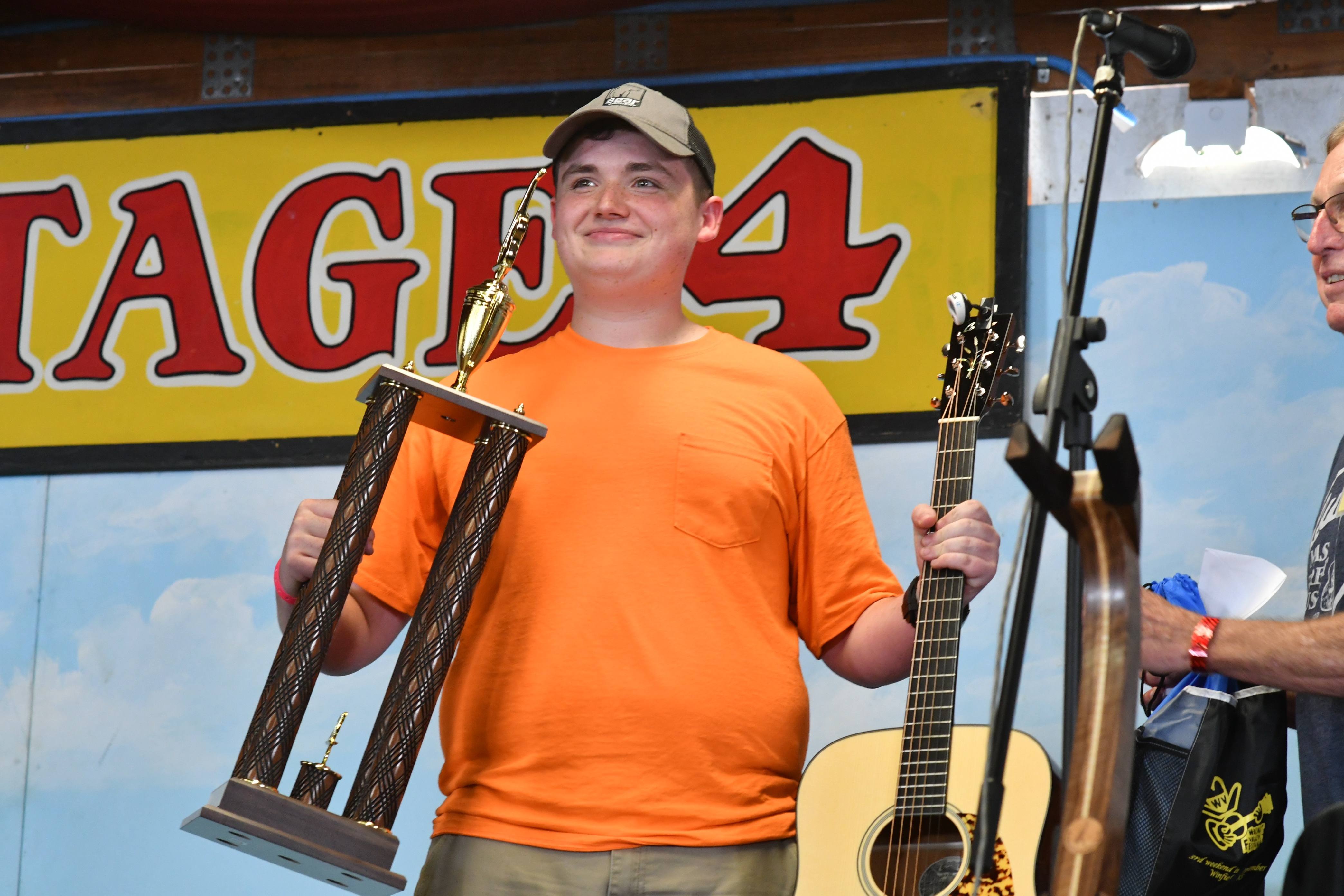
Postscript
A week later, Luke Lovejoy is touring the convention hall in Raleigh, North Carolina at the annual International Bluegrass Music Association World of Bluegrass event. Videos of the young picker jamming with top players are popping up on Facebook like roofing contractors after a hurricane. He’s being feted by every guitarmaker, all of whom want to show their instruments to a young player who seems bound for greatness in bluegrass. It’s a coming-of-age moment for the young player and he begins to realize his potential in music is wide open.
As he did in Winfield, Luke takes it all in stride, savoring the experience and taking advantage of the opportunity that his newly-signed artist endorsement deal with Bourgeois Guitars has given him.
“It was the highlight of my life so far,” Luke tells Fretboard Journal. And that’s just the start of a journey made possible by the professionalism and vision of five judges who heard greatness in a very young guitarist.
